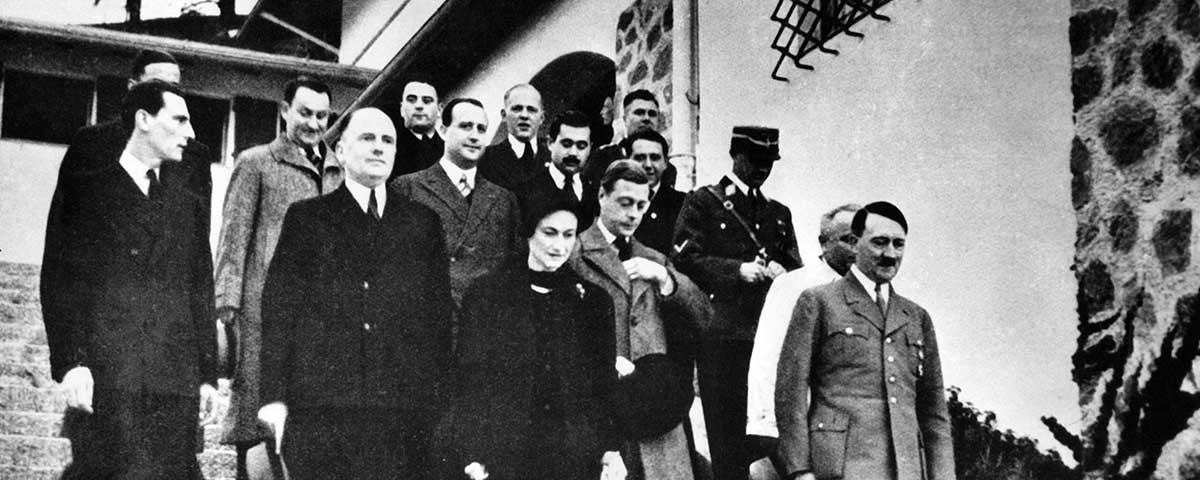17 Carnations: The Royals, the Nazis, and the Biggest Cover-up in History
By Andrew Morton. 370 pp. Grand Central Publishing, 2015. $28.
ANDREW MORTON IS WHAT we reviewing hacks call a “pathographer”—a biographer who specializes in his subjects’ personal shortcomings. For most of his career, Morton has confined himself to contemporary celebrities: boffo sorts like Madonna, Tom Cruise, and more British royals than you can shake a jeweled scepter at. With 17 Carnations, however, he’s gone back in time to the decades bracketing the war. But he’s still in the land of celebrity pathology.
Carnations concerns the Duke and Duchess of Windsor, perhaps the first international celebrities in the 20th-century style: victims or beneficiaries of ubiquitous, global mass media. Wallis Simpson was the ambitious American divorcée; Edward was the English ruler who fell for her so hard that he abandoned his throne to marry her in 1936.
Morton portrays both Windsors as almost pathologically self-indulgent. When war came, it impressed itself on them mainly as an “inconvenience.” To get the duke as far as possible from the action, Churchill appointed Edward governor of the Bahamas, where he mostly fretted about his villas in France, quietly beseeching the Nazis to maintain them unharmed. The duchess obsessed particularly over bed linens. Discovering that she had left behind a favorite green swimming suit, she demanded the help of American diplomats in securing its return. They obliged.
Stupid and foppish royals are nothing new—like hemophilia, they’re just another consequence of all that in-breeding. What made the Windsors singular—and what required Edward’s appalled family after the war to undertake the cover-up in the subtitle—was their romance with Hitler and his thugs. In the prewar years, Nazi officials shamelessly flattered the duchess, addressing her as “Your Royal Highness,” and treated the couples’ prewar visits as state affairs. Once war commenced, Hitler plotted to kidnap Edward and install him as puppet king upon Britain’s inevitable fall to the German advance. Horrifying to contemplate, the duke might have obliged. As it was, he spoke in private of the utility of the Blitz as a way to force the British government to see reason and sue for peace. “What a shame that he is no longer king!” said Joseph Goebbels. “With him an alliance would have been possible.”
During the war, Morton writes in this highly readable, slightly breathless account, Allied officials treated the duke as they would any treasonous politician, like “a Quisling or Laval in the making, watched warily by both Washington and London.” When the war ended, he and his wife sank into political and diplomatic irrelevance, celebrities cast into “genteel exile.” It was probably a better fate than they deserved.
—Andrew Ferguson is a senior editor at the Weekly Standard.
Originally published in the September/October 2015 issue of World War II magazine. Photo: Alamy.





